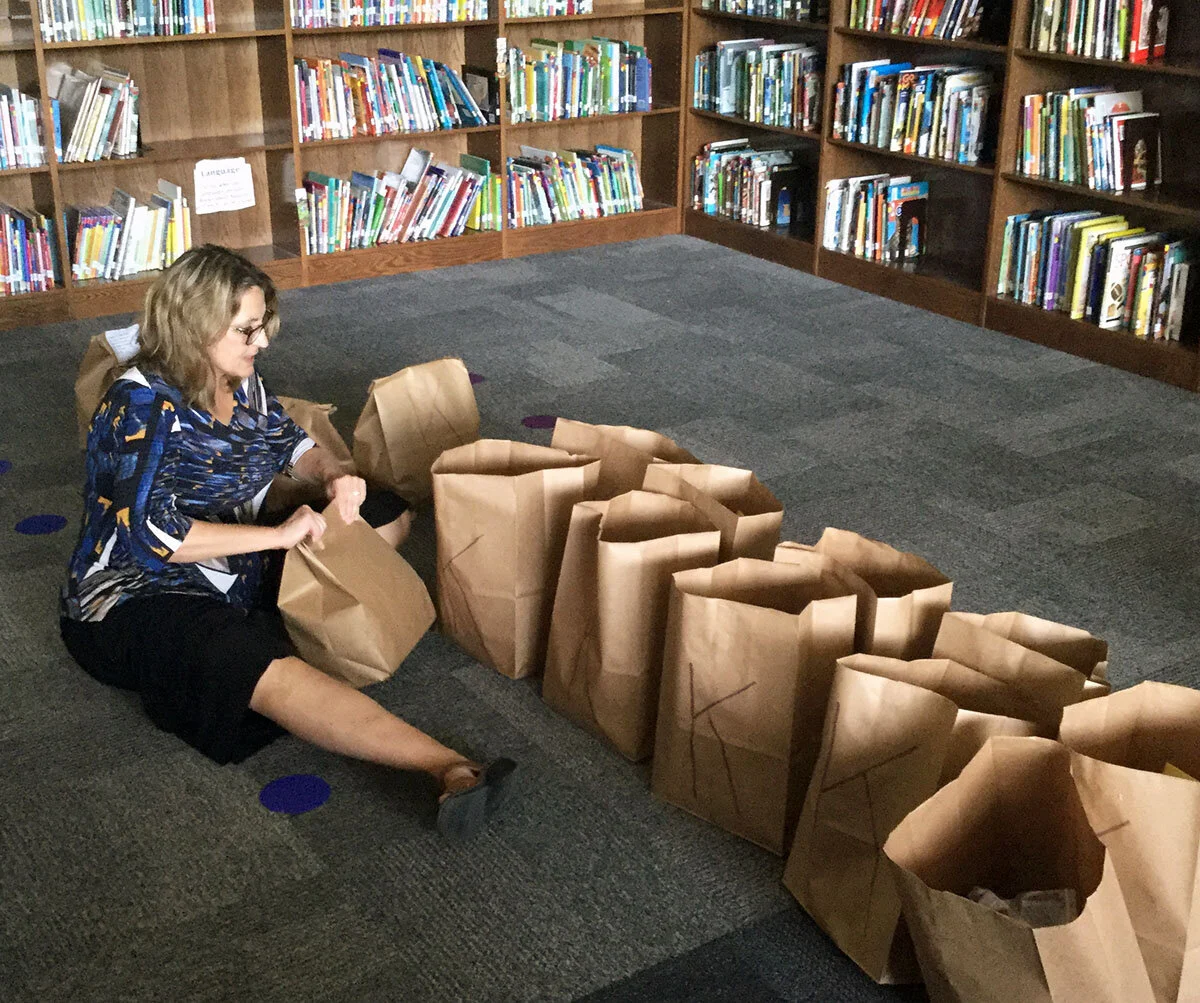Virtual summer school boosts students’ skills, LCPS’s remote learning practices
Dr. Deb Winings, LCPS’s director of elementary education, readies bags of school supplies and instructional aids that were distributed to the nearly 450 elementary students invited to take part in the district’s Jump Start summer learning program, which began Monday.
The school bell rang – albeit virtually – for nearly 450 elementary students on Monday as LCPS launched its Jump Start summer learning program.
While the four weeks of online classes will assist K-5 students who need an academic boost, the program also allows LCPS to test drive instructional techniques for remote learning that will be important if the district has to go that route during the regular school year.
“We’re hoping these lessons we’ve prepared will be a good foundation to get us started in every grade level (and) that we can use them to pilot the remote learning structure we’re creating in Lenoir County,” said Christy Eubanks, a curriculum coach for the district and director of Jump Start.
The summer instruction employs the district-issued iPads and the SeeSaw learning management app students use in class and blends live sessions with teachers powered by the Zoom communications app with videotaped lessons – 16 math, 16 English Language Arts (ELA) and 16 read-aloud lessons for each of the six grade levels.
The taped, asynchronous lessons were developed over the past several weeks by teams of teachers from each of the nine elementary schools working with nationally-known teacher trainers Mahesh Sharma in math and Jen Jones and Pernille Ripp on reading and literacy skills.
“If I’m talking about reading, for example, the videos are of the teachers actually teaching the lesson with the books online, sharing their screens and teaching skills,” Eubanks said. “It’s the same thing with math – using math manipulatives, for example, to teach certain foundational skills for each grade level.”
While the video lessons form the foundation of a library LCPS expects to build on, efforts to advance a remote learning program for the regular school year could well center on the corps of teachers who developed those lessons and learned how to shape teaching techniques for students learning at home, Eubanks believes.
“They’ve had wonderful training,” she said. “I just think that by using these teacher leaders around our district we will build an awesome framework for remote learning.”
In terms of remote or distance learning, “asynchronous” refers to lessons that can be accessed at any time. A key to such lessons, according to Eubanks, is teaching as if the students were sitting in class, with the teacher posing questions and even pausing to wait for students to answer. “We’re teaching them to teach to someone who’s not there,” she said.
When students are there – via Zoom – Jump Start teachers begin the day with a morning meeting “to build those relationships,” move into reading and math instruction and make time for fun activities “so the kids will want to stay with us for the rest of the day’s lessons.” At some point during each school day, a typical class of 12-16 students breaks up into groups of four or five for 30 minutes of guided reading instruction.
Planning for the summer learning session also took into consideration those students and families who cannot match up with the typical day’s schedule.
Of the 447 students invited into the program, 41 are known not to have a reliable broadband connection, according to school records confirmed by contact with the families. Those students had the video lessons preloaded on their iPads, arranged in files by day, and received a digital and print primer on how to access those offline files.
The school day runs from 9 a.m. to 1 p.m. Monday through Thursday, but LCPS expects to provide night instruction for “students who are at grandma’s house or daycare” during the day, Eubanks said. “We’re going to have teachers, about 10 teachers, available to teach some lessons in the evening as well. We’ll find out the needs of our students so we can schedule.”
While students received paper bags containing school supplies, instructional aids and two books that align with their lessons, their parents received phone calls from teachers prior to the first day Monday and were sent a guide for making remote learning successful.
“We want to make sure the parents are completely involved,” Eubanks said.


